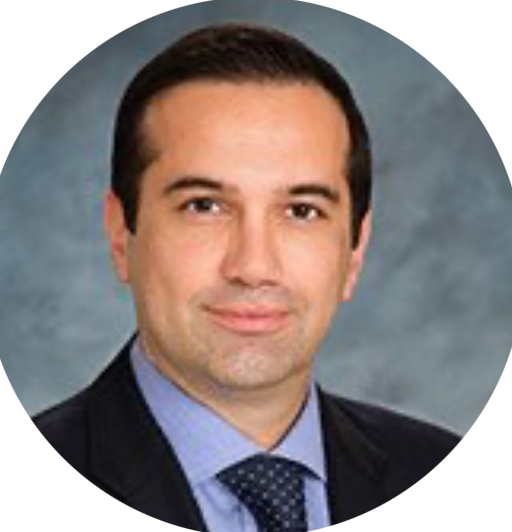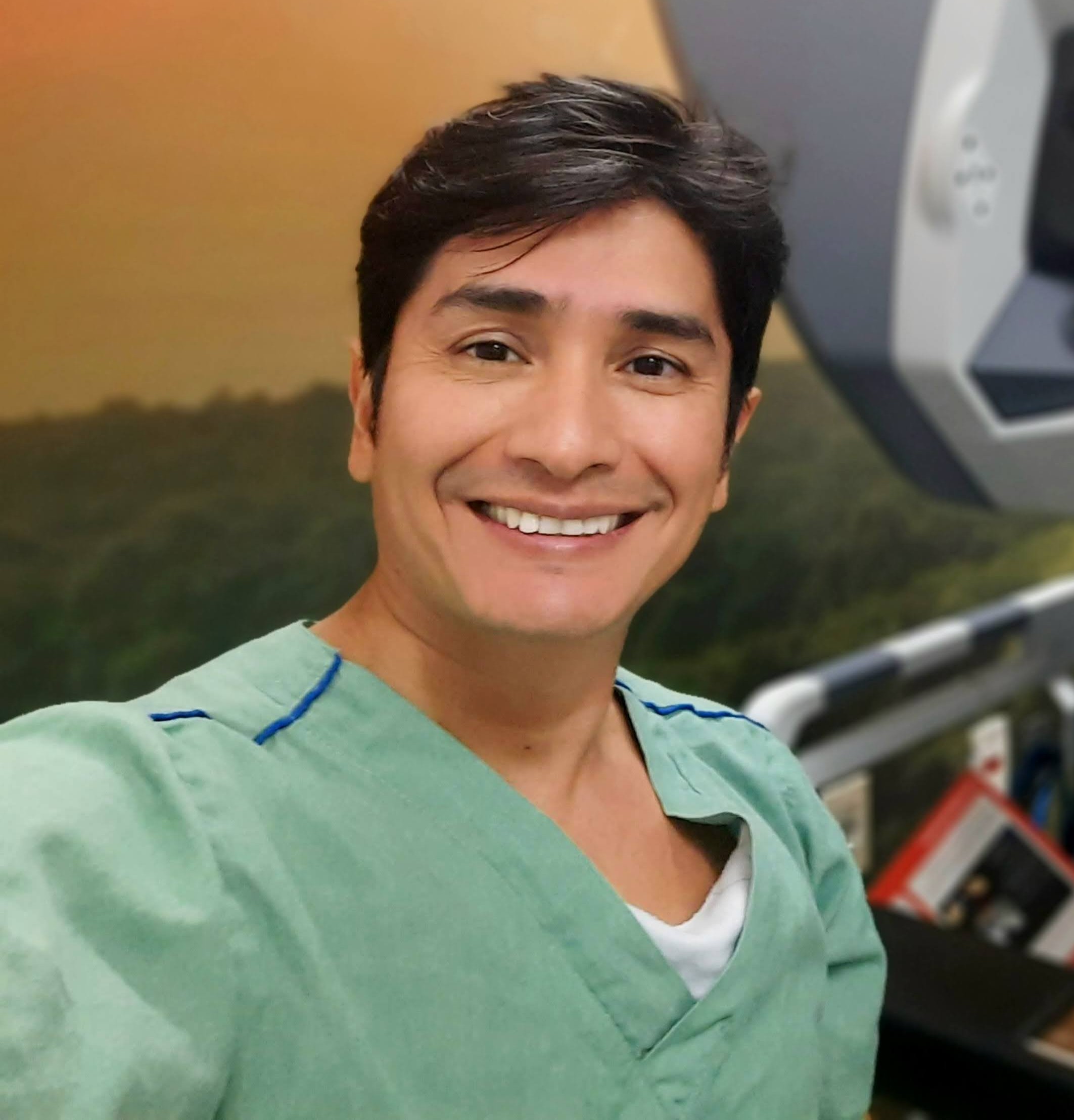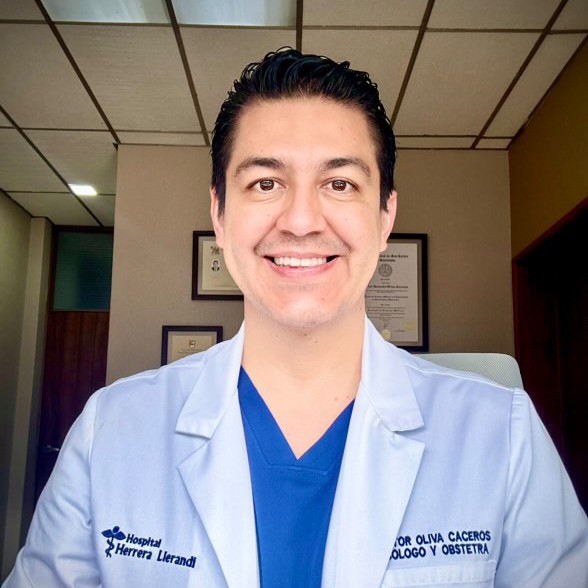
Dr. Reza Askari
Dr. Reza Askari, Endometriosis Specialist
City: Los Angeles, California, USA
Philosophy of Endometriosis Care: Current scientific evidence most strongly supports the coelomic metaplasia theory as the primary explanation for the development of endometriosis.
Our knowledge of endometriosis is growing every day, and I believe epigenetics and immune system factors will become key areas of focus moving forward.
What type of surgery do you perform for endometriosis: Excision
Medication: Effective care for endometriosis requires a comprehensive view of each patient’s health, recognizing that other conditions may contribute to symptoms. While there is no medical therapy that cures endometriosis, complete surgical excision remains the foundation of treatment. After surgery, when necessary, I often recommend hormonal therapy—typically progestins, either orally or through an intrauterine device (IUD)—to help manage bleeding or adenomyosis-related symptoms when present. I generally avoid GnRH agonists and antagonists, as their risk profiles and clinical outcomes do not, in my experience, offer meaningful advantages over progestin-based
Approach to Persistent Pain After Surgery: My goal is always to walk alongside patients through their recovery, not just for the surgery itself, but until they truly feel better
I believe that recovery does not end in the operating room. I stay closely involved with every patient’s care, providing follow-up and support for as long as needed to help them achieve meaningful, lasting improvement.
Every patient leaves surgery with a personalized recovery plan, shaped by their history, examination, and lab findings, with particular attention to any additional pain contributors. I routinely recommend pelvic physical therapy and collaborate with a trusted network of physiatrists to ensure each patient receives truly comprehensive care throughout their healing journey.

Dr. Ronald Enrique Delgado Bocanegra
Dr. Ronald Enrique Delgado Bocanegra,
Dr Ronald Delgado – Endometriosis Specialist
Summary: Dr Ronald Delgado is a dedicated endometriosis specialist based in Salvador, Brazil, known for his expertise in excision surgery and compassionate care. Rooted in the embryonic theory of endometriosis, Dr Ronald Delgado believes the condition is congenital, not caused by retrograde menstruation. This understanding shapes his focus on complete, fertility-preserving excision as a long-term solution. Dr Ronald Delgado prioritizes individualized care, using medication selectively to manage symptoms before or after surgery when necessary. For patients experiencing persistent pain, he takes a holistic and multidisciplinary approach, evaluating for residual disease and coexisting conditions like pelvic floor dysfunction or IBS. His patient-first philosophy ensures every woman receives thoughtful, evidence-based care tailored to her needs. With a reputation for meticulous surgical technique and compassionate follow-up, Dr. Ronald Delgado offers hope and healing to patients navigating the challenges of endometriosis.
City: Salvador, Bahia, Brazil
Philosophy of Endometriosis Care: My approach to the treatment of endometriosis is grounded primarily in the embryonic theory of origin, as proposed by Dr. David Redwine. According to this theory, endometriosis results from the aberrant differentiation of embryonic Müllerian remnants, which persist outside the uterine cavity and later develop into endometriotic lesions. This perspective shifts the focus away from retrograde menstruation and toward the concept that endometriosis is a congenital disease, present from birth and not caused by menstrual backflow. It explains cases in premenarchal girls, women with Müllerian anomalies, and the presence of endometriosis in distant locations that retrograde menstruation can’t account for. Clinically, this theory supports a surgical approach that emphasizes complete excision of all visible and suspected disease, rather than ablation or suppression. It also reinforces the idea that endometriosis is not a recurrent disease if completely removed — recurrence is often due to incomplete excision. Therefore, my goal is to perform meticulous, fertility-preserving excision surgery whenever possible, aiming for long-term relief and definitive treatment
What type of surgery do you perform for endometriosis: Excision
Medication: Grounded in the embryonic theory of endometriosis, I view the disease as congenital and not caused by retrograde menstruation. Therefore, my primary treatment is complete surgical excision, aiming for definitive management. Medications are used as supportive tools in two main contexts: before surgery, to manage symptoms temporarily when immediate surgery isn’t feasible. After surgery, in selected cases — like when there’s a residual microscopic disease or when fertility preservation is a priority. I typically use: Continuous combined oral contraceptives, Progestins (like dienogest) GnRH analogues with add-back therapy These options help control symptoms but don’t cure the disease. The focus remains on individualized, surgical-centered care.
Approach to Persistent Pain After Surgery: When patients experience persistent symptoms after surgery for endometriosis, my approach is comprehensive and individualized. First, I assess whether the symptoms are due to residual disease, coexisting conditions, or central sensitization. Persistent pain doesn’t always mean recurrence — it could be related to pelvic floor dysfunction, adenomyosis, irritable bowel syndrome, interstitial cystitis, or neuropathic pain. If I suspect residual or recurrent disease, I review the surgical report and imaging and may repeat diagnostic imaging with an expert. In some cases, reoperation may be necessary, especially if the initial surgery was incomplete. If other causes are identified, I work with a multidisciplinary team — including pelvic physiotherapists, pain specialists, gastroenterologists, and psychologists — to address the symptoms holistically. Medication (like progestins or neuromodulators) can also be used as part of symptom control, but not as the sole strategy. In essence, I treat persistent symptoms not with a one-size-fits-all approach, but through careful reassessment, patient education, and a multidisciplinary plan tailored to each woman’s needs.

Dr. Hector Oliva
Dr. Hector Oliva
Dr Hector Oliva – Endometriosis Specialist
Summary: Dr Hector Oliva is an endometriosis specialist based in Ciudad de Guatemala, Guatemala, known for his expertise in excision surgery and personalized care. Dr Hector Oliva follows the Mullerosis Gene Ensemble Genetic Theory, offering a scientific and compassionate approach to understanding and treating endometriosis. He combines surgical precision with supportive therapies to ensure the best outcomes for his patients.
In his practice, Dr Hector Oliva emphasizes the importance of mapping disease before surgery and tailors medication plans that may include dienogest, combined oral contraceptives, NSAIDs, and antioxidant supplements. He integrates lifestyle guidance, including nutrition, physical therapy, and exercise, into every patient’s care. For persistent pain after surgery, he recommends a six-month recovery period with continued rehabilitation to evaluate results and promote healing. Patients benefit from his holistic, science-driven approach to long-term symptom relief and improved quality of life.
City: Ciudad de Guatemala, Guatemala
Philosophy of Endometriosis Care: Mullerosis Gene Ensemble Genetic
What type of surgery do you perform for endometriosis: Excision
Medication: Dienogest with little symptoms and few diseases through mapping. Before surgery, pills containing estradiol plus dienogest are used when the patient needs contraception. AINEs and antioxidant supplements. Every patient needs nutritional guidance, exercise, and physical therapy
Approach to Persistent Pain After Surgery: Perform lifestyle changes and wait 6 months after the surgery. because this is the time that we can evaluate the benefits of the surgery. Every patient continues with physical rehabilitation.

Dr. Hugo Ruano
Dr. Hugo Ruano
Hugo Ruano – Endometriosis Specialist
Summary: Dr Hugo Ruano is a trusted endometriosis specialist based in Guatemala City, Guatemala. Grounded in the embryologic theory, Dr Hugo Ruano understands endometriosis as a condition originating from early developmental changes in the body’s mesodermal layer. This deep knowledge shapes his patient-centered approach to care. He specializes in excision surgery, offering precise treatment to remove endometriosis lesions effectively.
Doctor Hugo Ruano complements surgical care with personalized medication plans, often recommending non-steroidal anti-inflammatory drugs, oral contraceptives like ethinyl estradiol with dienogest, or levonorgestrel IUDs to manage symptoms. For patients with persistent pain after surgery, Dr Ruano emphasizes a multidisciplinary approach, involving neuropelviologists and anesthesiologists to address complex pain issues. His compassionate care and commitment to comprehensive treatment make Dr Hugo Ruano a leading choice for patients seeking expert endometriosis care in Guatemala.
City: Guatemala, Guatemala
Philosophy of Endometriosis Care: Embryologic Theory. Endometriosis has a mesodermic origin. It starts as early as embryologic life when the three layers (endoderm, mesoderm, and ectoderm) are different(iating)
What type of surgery do you perform for endometriosis: Excision
Medication: Non-steroidal anti-inflammatory medications. I also use oral contraceptives such as ethinyl estradiol plus dienogest or dienogest alone and an IUD of levonorgestrel.
Approach to Persistent Pain After Surgery: We usually carry on an evaluation with a neuropelviologist for initial and persistent symptoms. We also have an anesthesiologist specializing in pain management.

